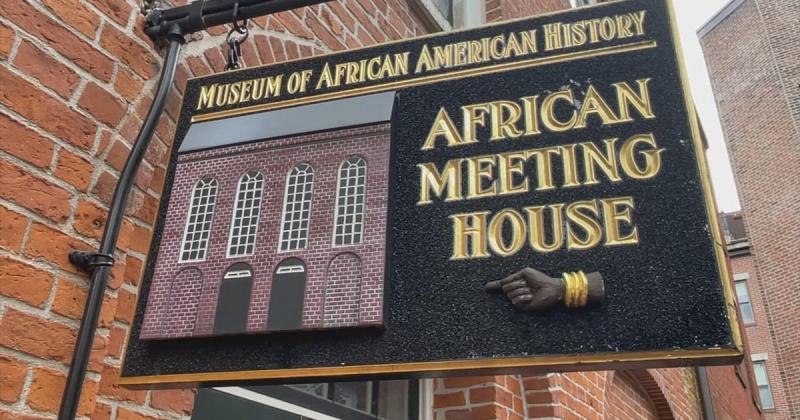African-American history museum in Boston worried about future as its federal grant is cut



By Paul Burton Paul Burton Paul Burton is a general assignment reporter for WBZ-TV News. Read Full BioPaul Burton
Updated on: April 11, 2025 / 6:11 PM EDT / CBS Boston
=========================================================================
African-American history museum in Boston loses federal grant, putting future programs at risk African-American history museum in Boston loses federal grant, putting future programs at risk02:08
A museum dedicated to the African-American history of Boston is now concerned about its future, as their federal grant has been cut.
"If you look at the ground, you will see that the planks are over 200 years old, these are original," said Dr. Noelle Trent, the president and CEO of the Museum of African-American History Boston and Nantucket. The museum is home to the African Meeting House of 1806, as well as the country's first public school built specifically for Black students in 1835. "There were lectures by Frederick Douglass here and William Lloyd Garrison."
"We no longer align with the White House policies"
Last June, the museum received a $500,000 three-year federal grant from the Institute of Museum and Library Services. But Trent said that is no longer the case.
"Yesterday, we received notice from the federal government that our grant had been terminated and part of the reasoning was that we no longer align with the White House policies," said Trent.
Trent said the capacity building grant was supposed to support school field trips, educational programs and to increase staff.
"There is frustration because we worked very hard to create something new for the museum," said Trent.
Losing three-year federal grant
In addition, the museum may have to pay back any undistributed funds it has already received from the grant.
"It will affect our ability to do programming moving forward," said Trent. "We're talking over $100,000."
Now this national treasure located in the heart of Beacon Hill has a different fight ahead of it.
"If you care about this place, we need you. We need you to join us in this fight," said Trent. "And what's important for us is to engage with our community and continue to make sure that these stories are here and that these buildings remain here for the next 100 years."





If it ain’t white it ain’t gonna relate.
I believe it is true that many museums receive federal funding. If Trump objects to any part of any of them, do they have to close now?
Unless they're able to find alternative funding they will probably have to close their doors. We can't keep borrowing money to fund everything and continue to increase the national debt.
so are you in favor of ending all funding to museums or just particular ones ?
I'm in favor of ending them all with the exception of museums that are owned by the federal government. The U.S. government owns numerous museums, primarily through the Smithsonian Institution. The Smithsonian is a collection of museums and other cultural facilities established by Congress to "increase and diffuse knowledge". Other government-owned museums include the Presidential Libraries and Museums managed by the National Archives.
Other than that, even thought it would hurt, I would end funding for all others until the budget is balanced and we can actually afford to spend the money.
IMO the national debt is a national security crisis.
Most private museums opened with private donations or local government contributions. If any of them received federal funding to open, that should not mean they can receive that funding year over year into infinity.
Museum owners should have looked at the audience they are trying to attract and determine whether that population would be able to sustain funding, with local funding, if able.
The federal government, ie, taxpayers, for instance, in Florida, have no reason to fund a museum in Indiana.
I was wondering, do you think the American government might fund the purchase of the white paint that non-white Americans will have to paint themselves in order to feel that they belong in, or are even welcome in America?